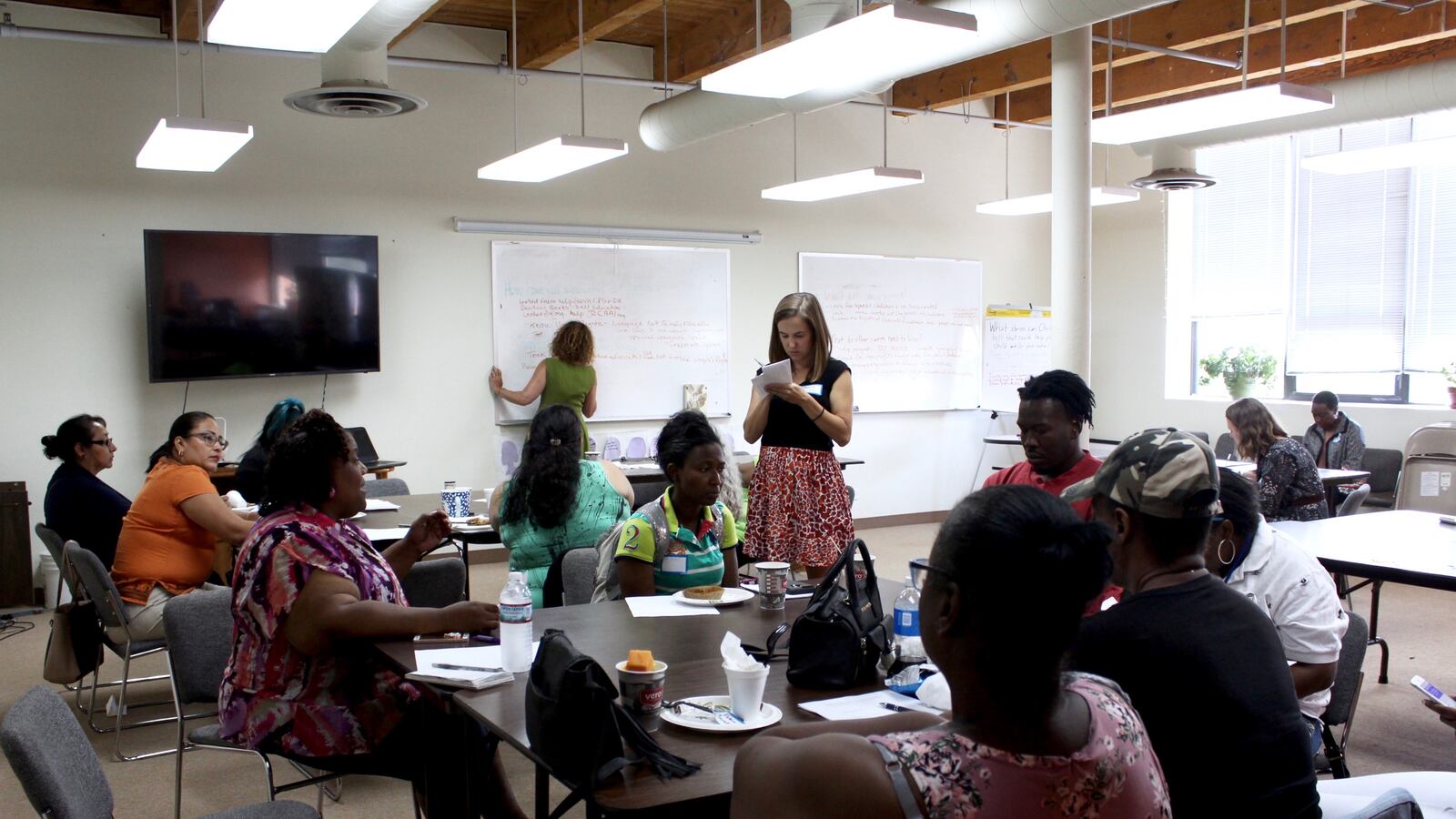Parents of children with special needs say they haven’t heard yet from Chicago Public Schools about how it plans to enact education improvements prompted by a state investigation.
The state takeover of special education at Chicago schools stems from an inquiry launched last fall by the Illinois State Board of Education that found the district’s Diverse Learners program violated students’ rights by routinely delaying and denying services, from speech and occupational therapy to busing and classroom aides.
However, the group Parents 4 Teachers said the school district has yet to inform parents and guardians about the investigation, that the probe surfaced serious problems and that students might be eligible for compensatory services that were stalled or denied. A state-appointed monitor now oversees the program, and has to approve any changes the district proposes to special education policies and procedures for at least three years.
Erica Clark, a founding member of Parents 4 Teachers, said the school district should have already sent out letters and emails to parents keeping them abreast of what’s happening.
“They should have sent it before the end of last school year,” she said. “Now we’re in October. People are already having IEP [Individualized Education Plan] meetings, people are trying to get services for their kids,” Clark said, referring to the plans that identify needs, goals, and services for a student with a disability.
The lack of communication is particularly alarming, Clark said, given that her group is hearing complaints from parents “similar to what we’ve been hearing for the last couple of years: that services aren’t being provided the way they should.” Last week, Parents 4 Teachers began surveying to gauge how widespread the issue is.
Clark said her group would have survey results by the end of the week.
The special education public inquiry was spurred last fall by an open letter from a group of public education advocates, including Parents 4 Teachers, the Chicago Teachers Union, Raise Your Hand, Access Living and others. Their argument that district policies enacted during a 2016 overhaul of special education were violating federal laws was bolstered by investigative reporting from WBEZ, Chicago’s public radio station.
The school district didn’t respond to interview requests for this story, nor did it comment on its lack of communication to parents about the state monitor.
But Illinois State Board Of Education spokeswoman Jackie Matthews said this week that the state is finalizing a letter to notify parents about actions overseen by the monitor that will affect their children, and also about the findings of its investigation and recommended reforms.
The board has already issued many recommendations, such as identifying students whose services were delayed or denied so their parents may seek remedies.
The board also advised that the district provide “training and communications to parents and guardians throughout the year regarding their rights, data-driven decision-making, the ISBE Parent’s Guide, and a list of free and low-cost legal services.”
Matthews said that the monitor is overseeing training by the district to help parents and guardians understand special education services and know their rights. October trainings, through the school district’s Parent University and Office of Diverse Learner Supports and Services, focus on navigating the process for Individualized Education Programs.
Here’s a list of this month’s trainings, all from 10 a.m. to noon:
Oct. 10, Sullivan High School, 6631 N. Bosworth Ave.
Oct. 18, Corliss High School, 821 E. 103rd St.
Oct. 19, Dyett High School, 555 E. 51st St.
Oct. 23, Perez High School, 2001 S. Throop St.
Oct. 25, Avondale/Logandale, 3212 W. George St.
Oct. 30, Bogan High School, 3939 W. 79th St.
About 50 parents attended last month’s trainings about the federal and state laws that protect students with special needs and their caregivers, and dictate how schools are supposed to serve them, Matthews said.
Earlier this week, the Illinois State Board of Education tweeted a link to a presentation about the state monitor, detailed changes anticipated with the state takeover, and provided a “Bill of Rights,” for parents with students in special education.
Parents and community organizations have long helped other parents navigate the school system. In July during a Chalkbeat Listening Tour stop at Community Organizing and Family Issues (COFI) on the Near West Side, reporters spoke with a dozen caregivers about how to best advocate for children with special needs.
You can read their advice here.

